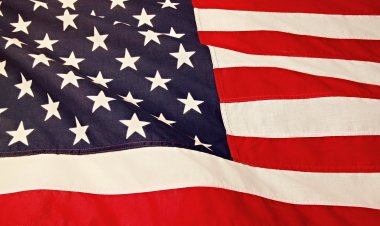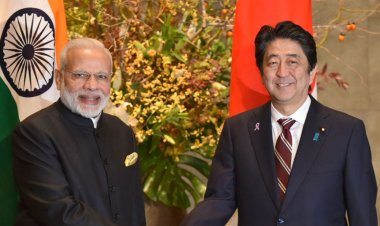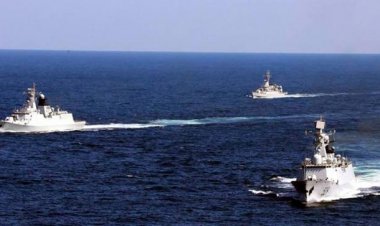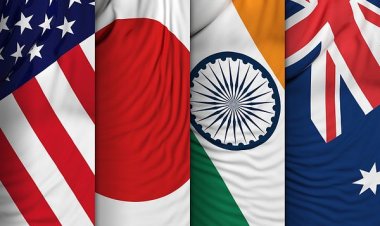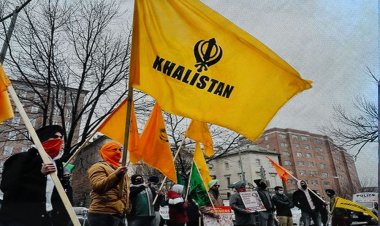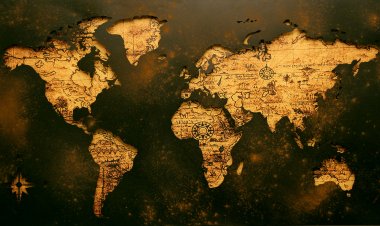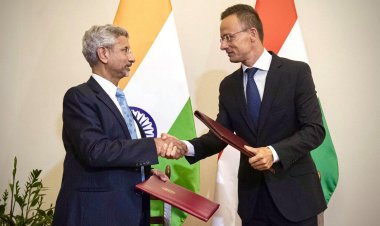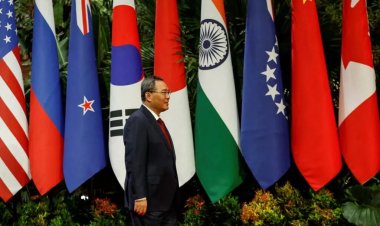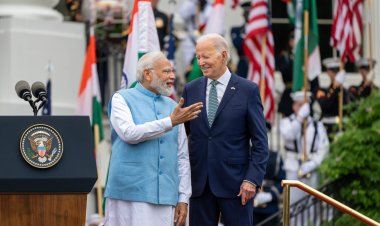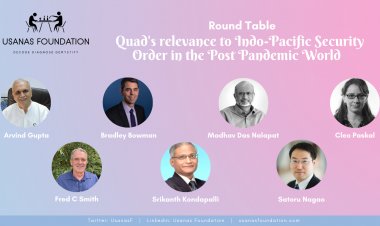The Philippine's strategic alliance against China
Beijing and Manila are locked in a territorial dispute in the South China Sea, where confrontations have escalated in recent months. China claims nearly all of the resource-rich waters, but the Philippines has taken a more assertive stance under President Ferdinand Marcos Jr.
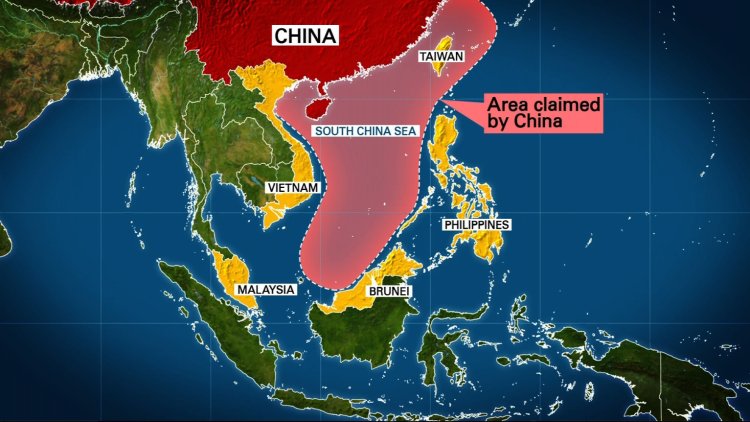
Explainer
By Harini Vallal J
The Philippines faces an “existential issue” from Beijing’s threats in the contested South China Sea and will not back down from asserting its claims despite Chinese “bullying”, its defence secretary Gilbert Teodoro has said recently.
The South China Sea is one of the world's most strategically and economically significant waterways. According to UN estimates, more than 21% of global trade passed through it in 2016, encompassing vast oil and gas reserves. China has tensions with most countries that border the sea, but recent confrontations involving China and the Philippines have received significant attention. Rising tensions have increased the likelihood of an armed conflict, with significant ramifications for global trade. To resist Chinese aggression, the Philippines has sought alliances with other countries with regional interests. The Philippines' strategic alliances with the United States, Japan, India, etc. have been crucial in opposing China's aggressive actions in the South China Sea.
The territorial disputes in the South China Sea, particularly the Paracel and Spratly Islands disputes, have come to mark China and the Philippines' bilateral relationship. The Philippines has nine outposts in the Spratlys, a disputed set of land and sea features in the South China Sea. The 2012 Scarborough Shoal Standoff, as well as subsequent encounters in the Second Thomas Shoal, are distinguishing characteristics of China and the Philippines' South China Sea dispute. However, the relationship between these countries has been extremely unstable over the last year. Chinese boats have repeatedly assaulted Philippine supply vessels or showered them with water cannons, injuring sailors on board.
The Alliances:
To counter China, the Philippines rely on strategic partnerships and the rule of law. For instance, in 2013, the Philippines filed a claim for the nine-dash line with an international tribunal in The Hague, which ruled in Manila's favour in 2016. However, China, a signatory to the UNCLOS, rejects the court's decision. The Philippines has strategically connected its territorial claims in the South China Sea to the broader objective of establishing a strategic partnership for peace and security in Southeast Asia. This approach has served to underscore the necessity of an internationally mediated resolution to the region's territorial disputes.
The United States has been an invaluable ally in combating what former Philippine Defence Secretary Mercado has described as China's "creeping invasion." Their relationship dates back to the 1951 Mutual Defence Treaty (MDT), which requires both countries to come to each other's aid in the event of a foreign assault. In March 2024, U.S. Secretary of Defence Lloyd Austin confirmed that the United States’ Mutual Defence Treaty with the Philippines extended to both countries’ armed forces, public vessels, and aircraft in the South China Sea. In order to improve collective reaction and take a more comprehensive approach, a trilateral summit of the United States, the Philippines, and Japan was conducted in April of this year. This meeting reaffirmed a commitment to free and open Indo-Pacific cooperation beyond pure military defence. Collaborative efforts include combined maritime patrols, infrastructure development, and economic integration. For example, the Luxon Economic Corridor (LEC) is expected to enhance connectivity between Subic Bay, Clark, Manila, and Batangas in the Philippines.
The Philippines ought to enhance ties with other Southeast Asian states that have similar claims in the South China Sea, such as Vietnam and Malaysia. This regional collaboration enhances the Philippines' bargaining power and creates a more united front against Chinese aggression. The United States should prioritise engagement with ASEAN member states, encouraging them to embrace the Philippines' strategy, known as ‘assertive transparency’, as coined by Ray Powell and Benjamin Goirigolzarri. This initiative would build agreement among Southeast Asian nations, encouraging a cohesive, multilateral response to this assault while also seeking worldwide support against China's irredentist ambitions. Shared concerns over freedom of navigation and territorial integrity have driven collaborative efforts, such as the ongoing ASEAN Code of Conduct (COC) negotiations. Manila additionally cooperated with Australia and India to get diplomatic and military backing. Joint naval exercises and patrols with these countries improve interoperability among participating forces, enabling a more coordinated response to possible future regional threats.
To conclude, the Philippines is currently navigating the challenge of balancing its resistance to China with the need to sustain its diplomatic relations. Completely severing ties with China is not a viable option as it is a major trading partner, and doing so could hinder economic progress while potentially escalating regional tensions. The concept of forming an Asian equivalent of NATO poses considerable challenges as some regional nations may be reluctant to antagonize China further. Despite these complexities, the Philippines' strategic position in the South China Sea establishes it as a significant player in the region, with its allies offering essential support for economic and security advancements. Given the escalating tensions in the South China Sea, collaborative efforts are essential to deter Chinese aggression and uphold the established international order based on rules.
Disclaimer: This paper is the author's individual scholastic contribution and does not necessarily reflect the organization's viewpoint.
Harini Vallal J, is a third-year student at JSIA pursuing a B.A. (Hons.) in Global Affairs. She is a research intern at Usanas Foundation. She has worked as an editor for CSS and as a research intern for JGC4G20 and CIRA. Her interest lies in multilateralism, security and strategy.

